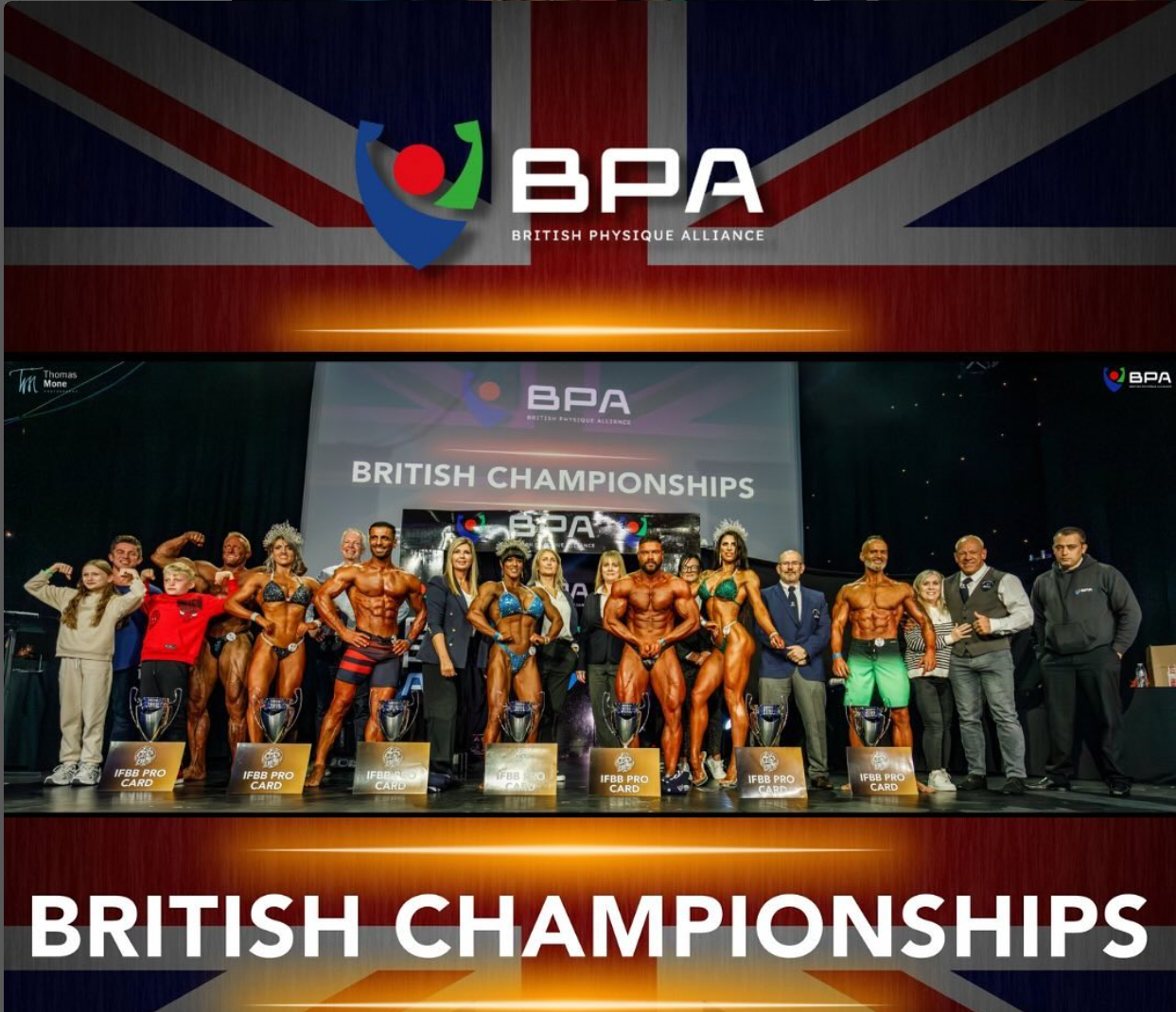
THE British Physique Alliance (BPA) will not be offering IFBB Pro cards this season after deciding not to work with the federation following a number of issues last term.
Problems included a last-minute change of rules. This saw some competitors choosing not to compete at the IFBB Pro Night of Champions, held in the UK. There was also a failure to explain that prize money would be subject to Spain's tax for sports people, which is 24 per cent. This meant athletes received almost a quarter less than the 'cheques' handed out on stage.
The BPA had agreed a deal with the original IFBB federation – formerly IFBB Elite Pro – in 2024 to offer "up to 10" competitors the chance to apply to compete as a professional.
Seven competitors were awarded an IFBB Pro card for winning the overall in their respective classes at the BPA British Finals last September. Originally, it was announced that these competitors would be allowed to compete at the IFBB Pro Night of Champions in London last October as a "try-before-you-buy" option. This meant competing as a pro and deciding after the competition whether to continue as a pro – and therefore paying €250 to register the pro card for the following season – or return to competing as an amateur.

But what is being blamed on the "language barrier" and "miscommunication", these rules were changed at the registration meeting the night before the event. Competitors were told this was no longer an option and they must pay €250 in order to compete. This led to one competitor returning home after deciding not to compete despite having travelled to the venue to register.
There were further issues too. It has since transpired that when some athletes applied to register their pro card, the federation did not reply.
In addition, there was miscommunication with the prize money. The IFBB Pro insisted on marketing the prize money in US dollars. This was despite the federation being based in Spain and the Night of Champions taking place in the UK.
What was not made clear to competitors was that this prize money would be paid from Spain – and therefore subject to Spain's flat rate of tax for sports people of 24 per cent. On top of this, some UK banks charge a conversion rate if money is paid in a foreign currency.
A few examples include one prize that was awarded at the Night of Champions of $6000. This had to be converted into Euros in order to deduct 24% Spanish tax. It was then converted in UK pounds. All this left the competitor with just £3900. Another example included prize money awarded of $700, with the competitor receiving just over £400.

A similar issue happened at this year's Arnold Classic in the IFBB Pro League. Ali Bilal was handed a cheque for $25,000 for first place in the men's physique. But after it was converted to euros and then subject to tax, he only received 14,700 Euros.
Non-residents in Spain (including foreign athletes) are taxed at a flat rate of 24 per cent on their Spanish-source income. This includes income from participation in sports events or activities organised by Spanish federations. This is the case even if the athlete is competing abroad but affiliated with a Spanish entity. All this begs the question why the prize money was marketed in US dollars.
This has led to the BPA deciding not to continue their affiliation with IFBB Pro for the 2025 season.
Frontdouble.com has also leant that the Arnold Classic Europe does not look like taking place this year.
IFBB Pro advertised on social media a World Cup on the weekend the Arnold would normally take place.
The IFBB Pro federation has been contacted for comment.
Leave a Reply